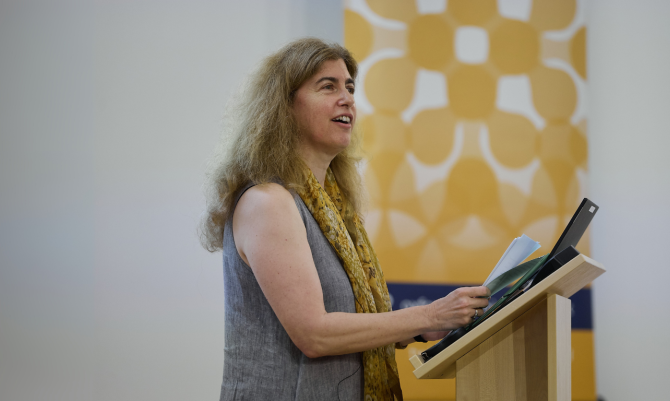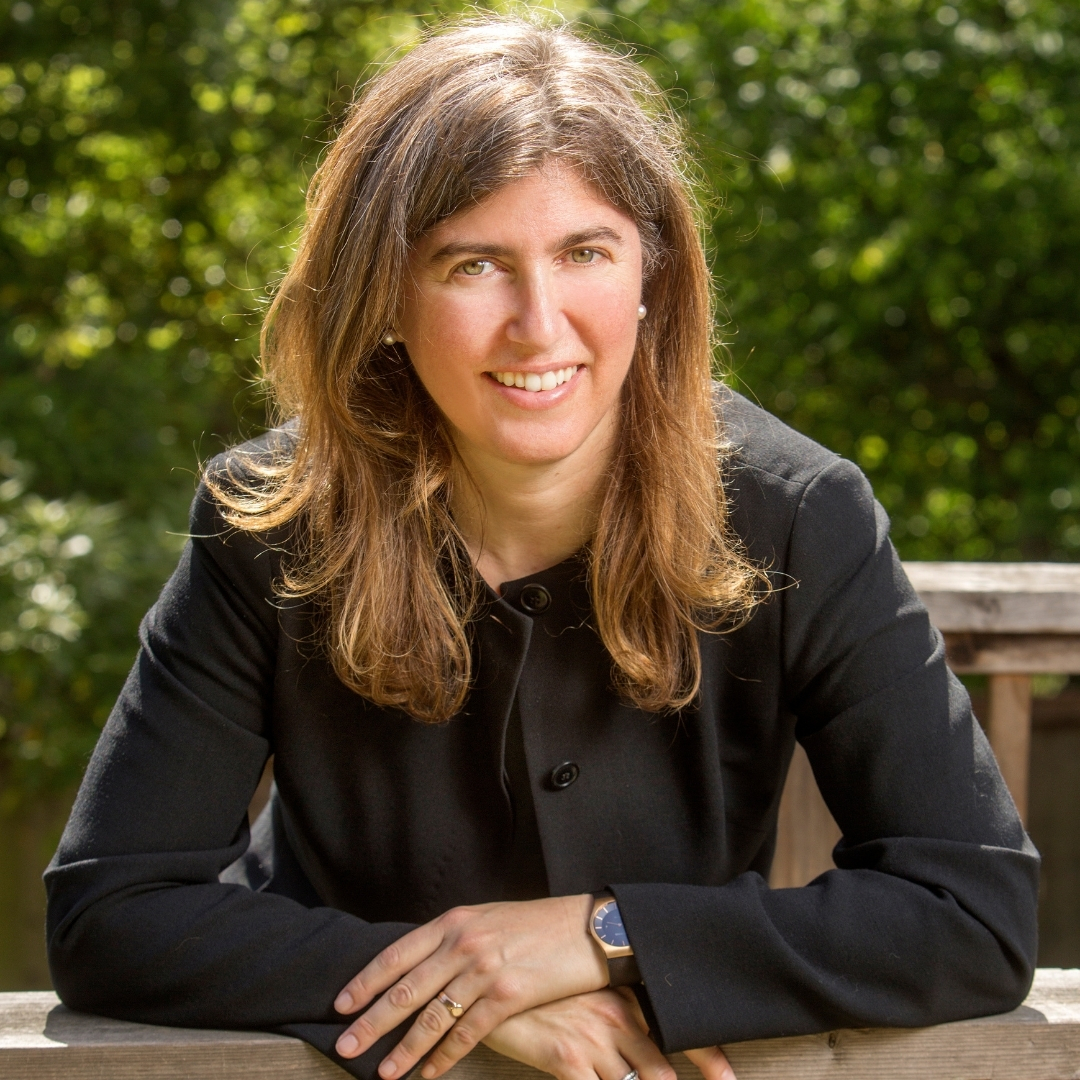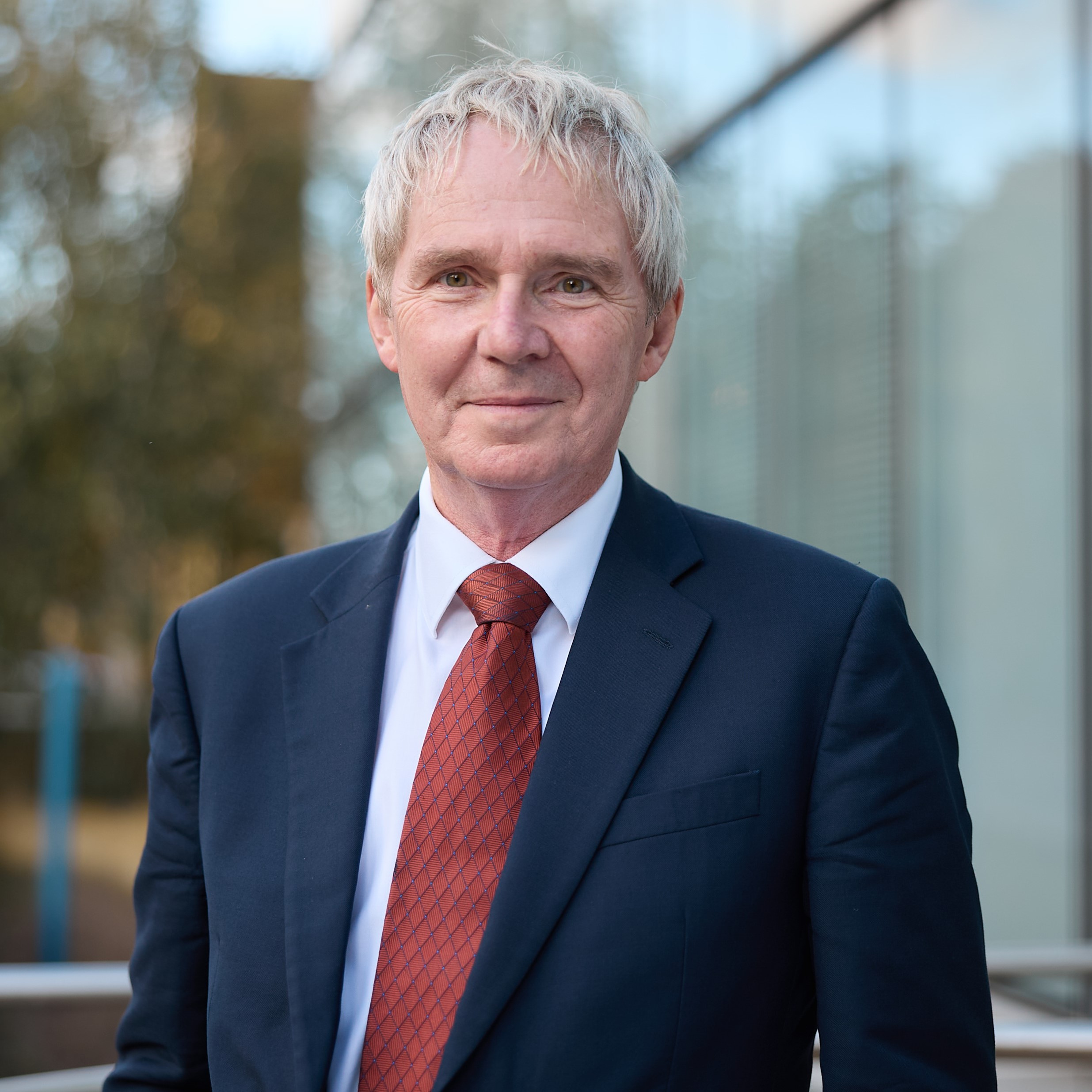
Institute for Ethics in AI Fourth Annual Lecture
We were delighted to host the fourth Annual Lecture of the Institute for Ethics in AI, featuring Professor Jessica Riskin from Stanford University.
Annual Lecture:
- Read the Write-up of the annual lecture
- See the Recording of the annual lecture
Title:
The Onion Axiom: A History of the Outside-In Approach to Artificial (and Natural) Intelligence.
Abstract:
Ever since the founding moments of artificial intelligence in the mid-twentieth century, the principal researchers and writers on the subject – from Alan Turing, and Norbert Weiner to Rodney Brooks, Daniel Dennett, and many others – have adopted the behaviourist assumption that intelligence is nothing more than its appearance. That if you could peel away all the layers of the onion, at the core you would find nothing but emptiness: there’s no one in there. This lecture will explore the implications of the onion axiom for the history of AI and consider how this history might inform our efforts to grapple with the runaway technology today.
Panel Discussion (Day two):
- See the Recording of the panel discussion
- Discover the bios of the commentators who took part in the panel discussion
On the second day, we held a 2-hour panel discussion where distinguished commentators from various disciplines provided their perspectives on Professor Riskin's lecture. This was followed by a Q&A session with the audience, offering a unique opportunity for in-depth dialogue and engagement.
The Institute for Ethics in AI will bring together world-leading philosophers and other experts in the humanities with the technical developers and users of AI in academia, business and government. The ethics and governance of AI is an exceptionally vibrant area of research at Oxford and the Institute is an opportunity to take a bold leap forward from this platform.
Every day brings more examples of the ethical challenges posed by AI, from face recognition to voter profiling, brain-machine interfaces to weaponised drones, and the ongoing discourse about how AI will impact employment on a global scale. This is urgent and important work that we intend to promote internationally as well as embedding in our own research and teaching here at Oxford.

Professor Jessica Riskin (Stanford University)
Jessica Riskin is Frances and Charles Field Professor of History at Stanford University where she teaches modern European history and the history of science. Her work examines the changing nature of scientific explanation, the relations of science, culture and politics, and the history of theories of life and mind. Her books include The Restless Clock: A History of the Centuries-Long Argument over What Makes Living Things Tick (2016), which was awarded the 2021 Patrick Suppes Prize in the History of Science from the American Philosophical Society, and Science in the Age of Sensibility (2002), which received the American Historical Association's J. Russell Major prize for best book in French history. She is a regular contributor to various publications including Aeon, the Los Angeles Review of Books and the New York Review of Books.
Hosted by

Professor Sir Nigel Shadbolt, is a leading researcher in Artificial Intelligence (AI) and was one of the originators of the interdisciplinary field of Web Science. He is Principal of Jesus College Oxford and a Professor of Computing Science at the University of Oxford. He is chairman of the Open Data Institute which he co-founded with Sir Tim Berners-Lee. In 2009 he was appointed Information Advisor by the Prime Minister and, working with Sir Tim Berners-Lee, led the development of the highly acclaimed data.gov.uk website. In 2010, he joined the UK government’s Public Sector Transparency Board – overseeing Open Data releases across the public sector. He was knighted in 2013 for ‘services to science and engineering’.
Nigel has a degree in Philosophy and Psychology from the University of Newcastle and a PhD in Artificial Intelligence from the University of Edinburgh. In 1983 he joined the Department of Psychology at Nottingham where he established and led a vibrant AI group. In 1992 he became the Allan Standen Professor of Intelligent Systems. He moved to Southampton’s School of Electronics and Computer Science in 2000. At Southampton he researched the next generation of the World Wide Web and was the first Head of the Web and Internet Science Group. At Oxford he has focused his research in human centred AI in a wide range of applications. Most recently he was asked to lead the setting up of the Oxford Institute of Ethics in AI.
Prof Sir Nigel Shadbolt has also recently been appointed to the Council for Science and Technology (CST), the Council that advises the Prime Minister and Cabinet on science and technology. He joins seven other new members who will advise the Prime Minister and Cabinet on strategic science and technology policy issues that cut across the responsibilities of individual government departments.
